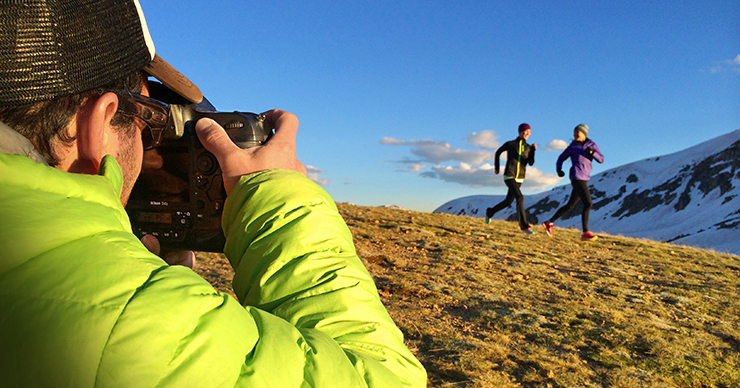Hey Corey,
I love your work! I’m a photographer, climber, and snowboard instructor from Alberta, Canada. I recently quit my job in the oilfield to create a life based around the things I’m passionate about. I was wondering if you had any advice on getting into the outdoor/lifestyle photography industry. Currently I have started contacting golf courses, figuring it would be a good way to use landscape photography skills. I have no real desire to do weddings; ’d much rather shoot wildlife or outdoor lifestyle. I just started setting up a site at sidestream.zenfolio.com. If you could offer any advice, pointers, or critiques I would really appreciate it!
Cheers, Chris Scharf
Step one: Get the money you need to “buy” yourself the time you need to actually go shoot pictures.
Step two: Those pictures you shoot need to be at least as good, if not much better, than all of your competitors.
Step one is easy. Get a job so you have some income to pay your bills. Anytime you aren’t at your job, you better make damn sure you are shooting something you love. I know one successful photographer who used to work in the tech industry, but would wake up every day at 4:30 a.m., hike out to some incredible landscape by dawn, shoot photos for an hour while the light was good, and get to his cubicle by 9 a.m. He did this for years until he finally had an archive of work that allowed him to break into the professional photography world full-time.
Another option: take out a loan from the bank so you can cover your expenses for a little while. Dive headfirst into this world of making pictures 24/7. When the money runs out, you’ll find yourself either sinking or swimming. A committing path, for sure, but certainly a viable one.
Depending on your comfort level, financial needs, and a dozen other important factors that only you can weigh out, the bottom line is that A) you probably need money and B) you definitely need time to build a portfolio of work. The bigger emphasis, of course, being on B.
Step two is the hard part. There are many great shooters out there, so competition is really tough and standards are brutally high. For some people this fact is discouraging. Others thrive on this fact—they see competition as an opportunity. (Guess who has a better chance of making it?) Look at all your competitors’ work, really studying it. Now you know where the bar is set! You have to be at least as good as the best in the business. Ideally, you’ll be better than everyone else.
As soon as you are making really great pictures, and you prove that you can do that consistently, the market will find you.
One of the most common mistakes I see people make is that they prematurely submit mediocre pictures to magazines or clients. They don’t get a response, and they wonder why—but the answer is simple: sub-par work doesn’t typically get a response. Remember: you only get one chance to make a first impression, so make that first impression really strong. Seek criticism from peers, and be your own biggest critic. Constantly push yourself to try harder, work harder, be better and improve your work. Again you want to take pictures that are at least as good, if not better, than your competitors, and you want to be able to prove that you can get the goods consistently. Quality and Consistency are two of the most important traits that clients look for in photographers or filmmakers. After that, you also need to be a good person who people enjoy being around and who is easy to work with.
Step two is the hardest part, but it’s also the most fun. You are getting out there and actually doing it. There’s no substitute for experience and plucking away at those 10,000 hours of work that you need to put in before becoming a master.
Get out there, make pictures of exactly what it is you want to be shooting and remember to have fun in the process.

4 comments
Thanks for share your tips Corey!
Really useful.
Corey – Thanks for the great write up. Stoked on the above beta!
That’s exactly it Corey. I’m just about to try the more drastic “dive in 24/7” plan and just sold my house to raise enough money to open a studio in Nashville. Wish me luck!
Precisely correct statements Corey, dedication is the key and photography is such a fondly taken career that standards are always high so self criticism is very important as you said and also self belief, which is needed to thrive in excelling with high standard images.
Comments are closed.